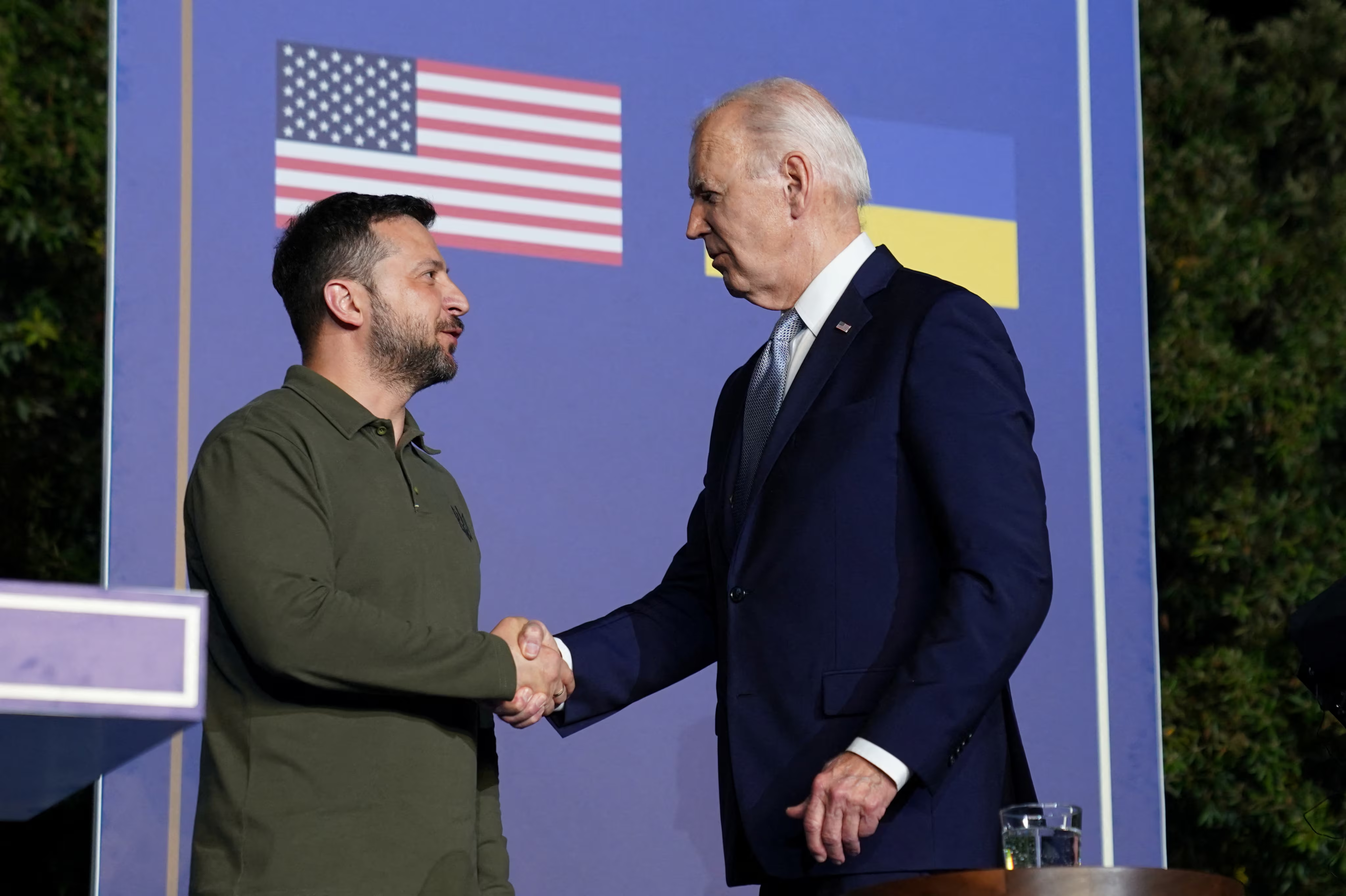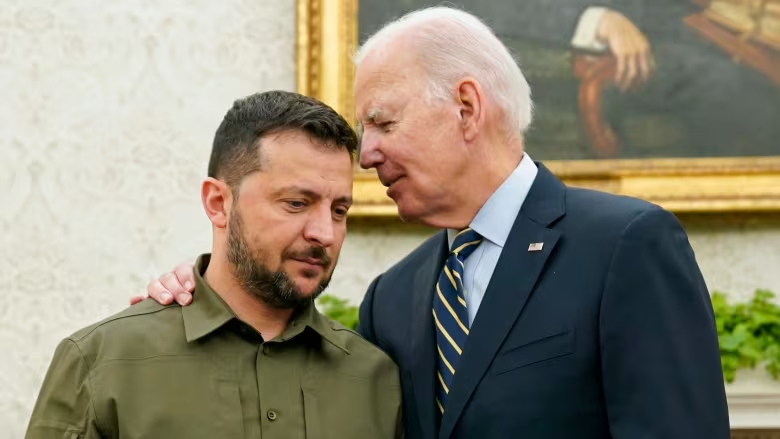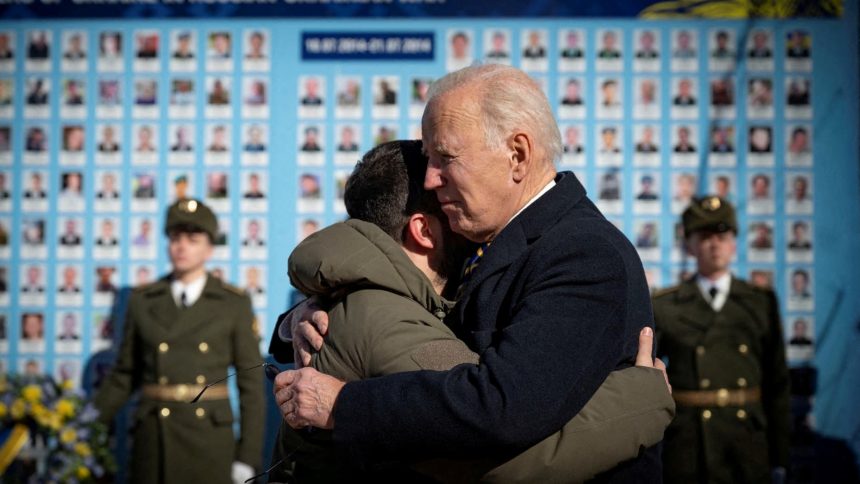In a significant policy reversal, the Biden administration has authorized Ukraine to use U.S.-supplied weapons for long-range strikes within Russian territory. This strategic decision, confirmed by two U.S. officials and another source familiar with the matter, marks a pivotal shift in Washington’s approach to the ongoing Ukraine-Russia conflict.
The development comes amid escalating tensions and increased international scrutiny over Russia’s actions in the region.
Ukrainian President Volodymyr Zelenskyy has long appealed for broader operational flexibility with U.S.-made weaponry, particularly the Army Tactical Missile Systems (ATACMS). These weapons boast a range of up to 190 miles (306 km), allowing Ukraine to target critical Russian military infrastructure far beyond the border.
Ukrainian forces are expected to launch their first long-range strikes in the coming days, though operational details remain under wraps for security reasons.

The Biden administration’s decision coincides with mounting challenges on the battlefield, including Russia’s deployment of North Korean ground troops to bolster its ranks. This unprecedented development has heightened alarm in Kyiv and Washington alike, prompting the U.S. to recalibrate its stance.
President Zelenskyy underscored the gravity of this decision in his evening address, signaling Ukraine’s readiness to act decisively. “Today, many in the media are saying that we have received permission to take appropriate actions,” he said. “But strikes are not made with words. Such things are not announced. The missiles will speak for themselves.”
READ ALSO: Philippine Central Bank Launches Interest Rate Swaps Market to Boost Bond Trading and Liquidity
While Kyiv prepares to leverage this expanded arsenal, the White House and the U.S. State Department have refrained from public comment.
The Kremlin has yet to issue an official response, but the potential for deep strikes into Russian territory has provoked sharp warnings from Moscow. Senior Russian officials have labeled the move a dangerous escalation.
Andrei Klishas, a high-ranking member of Russia’s Federation Council, cautioned that such actions could have catastrophic consequences. “The West has decided on such a level of escalation that it could end with the Ukrainian statehood in complete ruins by morning,” he said via the Telegram messaging app.
Similarly, Vladimir Dzhabarov, deputy head of the Russian upper house’s international affairs committee, warned that this decision could ignite a broader conflict. “This could lead to World War Three,” he declared.
The decision to allow long-range strikes has elicited diverse reactions among U.S. policymakers. Some Biden administration officials view the move as essential for empowering Ukraine to regain leverage in the conflict, particularly as Russian forces continue to make territorial gains.

Others remain skeptical, questioning whether this shift will significantly alter the war’s trajectory or bring the parties closer to a resolution.
Senior Biden officials have emphasized that their aim is to bolster Ukraine’s position, whether on the battlefield or at the negotiating table. With only two months left in office before President-elect Donald Trump’s inauguration on January 20, the Biden administration appears determined to maximize Ukraine’s military effectiveness for the year ahead.
READ ALSO: Akwa Ibom Revenue Service to Fully Digitalize Tax Collection Processes by 2025
It remains unclear how President-elect Trump will address this issue once he takes office. Throughout his campaign, Trump criticized the scale of U.S. financial and military aid to Ukraine, pledging to end the war quickly—though he has yet to outline specific measures.
A spokesperson for Trump did not immediately comment on the matter. However, one of his close advisers, Richard Grenell, voiced disapproval of the Biden administration’s timing. “Escalating the wars before he leaves office,” Grenell remarked in a post on X (formerly Twitter).
The decision follows months of debate among lawmakers, with some congressional Republicans advocating for relaxed restrictions on U.S.-provided weaponry. These lawmakers argue that empowering Ukraine to strike deep into Russian territory could shift the balance of power in Kyiv’s favor, potentially expediting a ceasefire or peace talks.
Allowing Ukraine to execute long-range strikes represents a calculated gamble by the Biden administration. While some experts believe it could enhance Ukraine’s negotiating position and deter further aggression from Moscow, others fear it may provoke an uncontrollable escalation.
As the global community watches this unfolding chapter, the stakes for Ukraine, Russia, and international stability have never been higher. For now, Zelenskyy and his military forces are poised to let their actions “speak for themselves,” setting the stage for what could be a decisive turn in this protracted conflict.

This bold shift underscores the complexities of modern warfare and the delicate balance of global diplomacy. As the situation develops, the international community will continue to grapple with the far-reaching implications of these actions. Whether this move will hasten peace or intensify hostilities remains uncertain, but its impact will undoubtedly shape the future of the Ukraine-Russia war.
The Biden administration’s decision to allow Ukraine to use U.S.-made weapons for strikes deep inside Russia marks a critical turning point in the conflict. This move comes amid reports of over 10,000 North Korean soldiers being deployed to eastern Russia, with many engaging in combat operations in the Kursk region.
READ ALSO: New Nvidia AI Chips Face Overheating Issues, Raising Concerns Among Customers
Despite heavy losses, Russia is advancing at its fastest pace since 2022, recapturing some areas Ukraine had seized in earlier incursions. Stretched thin, Ukrainian forces have struggled to hold their gains, prompting renewed calls for more robust military support.
Experts like Alex Plitsas from the Atlantic Council argue this policy shift, though necessary, is overdue. “Removing targeting restrictions lets Ukrainians stop fighting with one hand tied behind their back,” he said, lamenting delayed access to advanced weapons like ATACMS and HIMARS.

Republican Representative Mike Turner echoed this sentiment, describing Biden’s move as “long overdue,” while Poland’s foreign minister, Radoslaw Sikorski, called it a direct response to North Korea’s involvement and Russia’s escalatory actions.
As Kyiv prepares for deeper strikes, the stakes are higher than ever, with global concerns about escalation and NATO’s potential involvement looming large. This decision may shift the balance, but its ultimate impact on the war’s trajectory remains uncertain.

